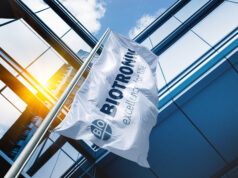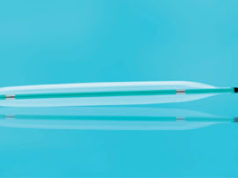
![]() New two-year follow-up data from the BIOMAG-I first-in-human trial confirms a reliable and predictable long-term safety profile for Freesolve, the third-generation resorbable magnesium scaffold (RMS), establishing it as a true alternative to contemporary drug-eluting stents (DES). The results were presented by Michael Haude (Rheinland Klinikum, Neuss, Germany) at the 2024 EuroPCR conference (14–17 May, Paris, France).
New two-year follow-up data from the BIOMAG-I first-in-human trial confirms a reliable and predictable long-term safety profile for Freesolve, the third-generation resorbable magnesium scaffold (RMS), establishing it as a true alternative to contemporary drug-eluting stents (DES). The results were presented by Michael Haude (Rheinland Klinikum, Neuss, Germany) at the 2024 EuroPCR conference (14–17 May, Paris, France).
At the 24-month follow-up, the incidence of target lesion failure (TLF) was 3.5% alongside a corresponding 3.5% incidence of target lesion revascularisation (TLR) compares favourably with various second-generation DES. No cases of myocardial infarction (MI), cardiac death, or definite/probable scaffold thrombosis were reported.
“At this two-year time point, the Freesolve RMS with its new Magnesium alloy which allows for increased radial strength, showed again excellent clinical and safety,” said Haude. “With this highly competitive device, we’re advancing towards a randomised trial BIOMAG-II to compare the advantages of a fully resorbable implant to a permanent DES that remains in the artery indefinitely.”
The initial findings from the BIOMAG-I study one year follow-up revealed excellent late lumen loss outcomes at both six and 12 months. Additionally it confirmed that the Freesolve RMS achieves complete absorption within 12 months post-implantation as a result of its proprietary BIOmag magnesium alloy.
“The new outcomes from the BIOMAG-I trial highlight a very promising future for the era of metallic resorbable magnesium scaffolds,” said Georg Nollert, vice president medical affairs, vascular intervention at BIOTRONIK. “This strengthens our dedication to innovate and progress through the Freesolve RMS technology, while continuously building strong clinical evidence to ultimately enable the optimal outcomes for patients.”
Additionally, the BIOMAG-II trial has started and is a prospective, international, multi-centre randomised-controlled study aiming to evaluate the safety and clinical performance of the new-generation Freesolve RMS, compared to a contemporary DES. The first patient has already been enrolled at the University Hospital Geneva in Switzerland. The study is primarily evaluating the TLF rate over a 12-month period with consecutive follow-ups.












